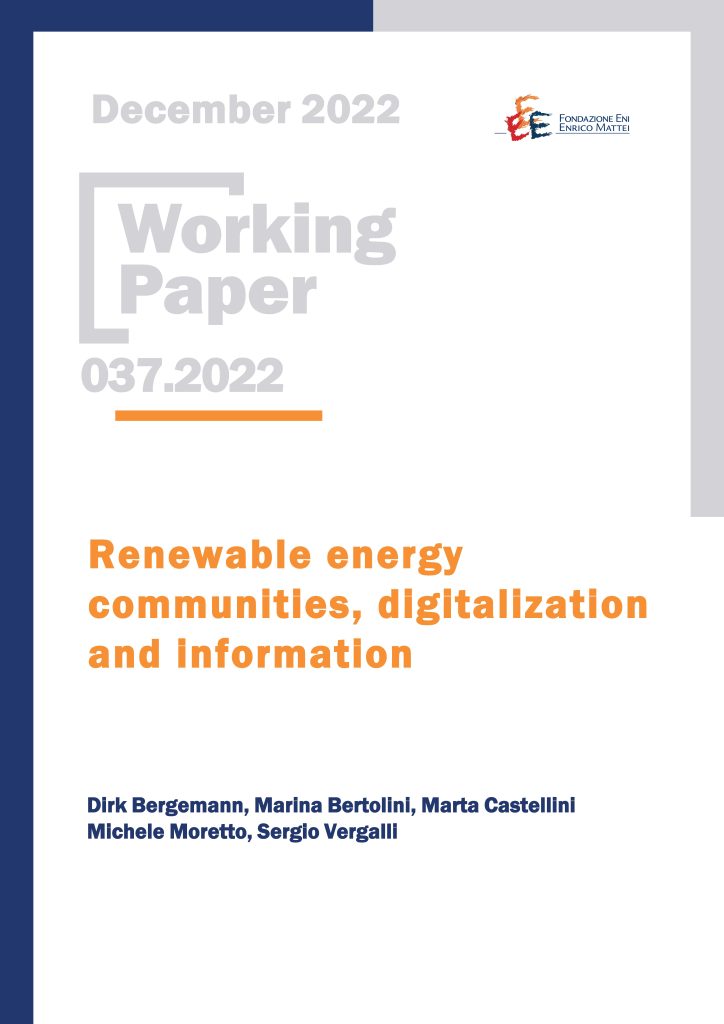Renewable energy communities, digitalization and information

02.12.2022
Dirk Bergemann (Department of Economics, Yale University and Fondazione Eni Enrico Mattei); Marina Bertolini (Department of Economics and Management, Levi Cases Centre and CRIEP, University of Padova); Marta Castellini (Fondazione Eni Enrico Mattei and Department of Civil, Environmental and Architectural Engineering, DICEA, University of Padova); Michele Moretto (Department of Economics and Management, Levi Cases Centre and CRIEP University of Padova); Sergio Vergalli (Fondazione Eni Enrico Mattei and Department of Economics and Management, University of Brescia)
Q42, C61, D81
Smart Grids, Renewable Energy Sources, Renewable Energy Communities, Prosumers, Peer to Peer Energy Trading, Information, Privacy Costs
In this work we study the case of agents willing to engage in a Renewable Energy Community (REC). The municipality – being the promoter of the REC – burdens all the investment costs (RE plants, storage, local grid interventions) and entrusts an aggregator of its operation paying a fixed tariff. The latter, acting as a monopolist, is also the sole supplier of energy for the REC’s members. The management of the REC requires the collection of energy data from the members to assure its efficient operation on the side of the self-consumption and exchange of energy within it. Such data allow also the identification of the agents’ preferences across energy devices and are an additional source of revenues for the aggregator thanks to their sell to third parts. This behaviour translates into a dis-utility the agents, which we call privacy cost. In such a framework, we consider also uncertainty on the side of the investment cost. On the basis of the outcomes of our model, we are able to study the effect of data collection policy performed by the aggregator on the size of the REC, while also accounting for agents’ valuation and the role of uncertainty on the investment cost side.
***
Suggested citation: D. Bergemann, M. Bertolini, M. Castellini, M. Moretto, S. Vergalli, ‘Renewable energy communities, digitalization and information’, Nota di Lavoro 037.2022, Milano, Italy: Fondazione Eni Enrico Mattei
